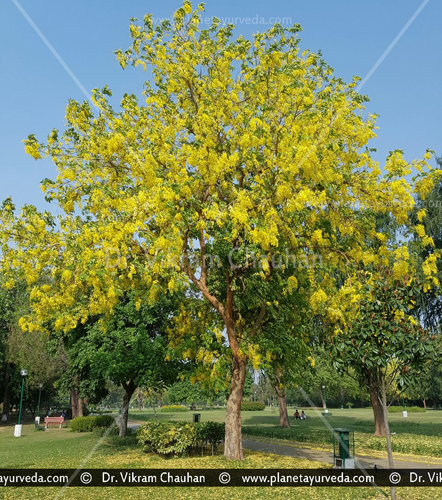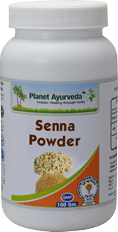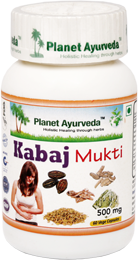AMALTAS, PURGING CASSIA (CASSIA FISTULA)
Amaltas tree is a golden shower medium sized tree. Its growth is fastest up to 10-20 meter high. Amaltas Leaves are deciduous, long and pinnate. Three to eight leaves are combined to form a cluster and each leaflet is about 7-21 cm long and 5-9 cm broad. This tree produce pendulous racemes long flowers with five yellow equal sized petals. Amaltas Fruit is a legume with pungent smell serving several seeds inside. Amaltas Wood is very stable and durable.

GENERAL INFORMATION
Amaltas is also known as "Aragvadha" in Sanskrit language and Amaltas botanical name is Cassia fistula, which literally means to kill diseases. It belongs to Fabaceae family. Aragvadha is one of the most popular herbal plants known for its medicinal worth. It has got very effective detoxifying properties for the body, not only externally when applied to the skin but also internally. Every part of Amaltas plant contains various phytochemicals.
- Amaltas Leaves – tannins, rhein, glucoside and sennosides.
- Amaltas Stem bark – fistucacidin, tannins, rhein and barbaloin.
- Amaltas Pulp – carbohydrates, proteins, leucin, tryptophan and glutamic acid.
- Amaltas Seeds – vermolic, sterculic and galactomannan
SPECIAL NOTE ABOUT AMALTAS HERB
In India this golden flower tree is the state flower of Kerala state. Flowers have religious importance in Vishnu festival. Image of this tree is painted on Indian 20 rupees. Yellow flower of Amaltas represents the Thai royalty and it is also national flower of Thailand.
HABITAT
Amlatas is species easily found in Indian subcontinent and associated regions of south East Asia. It is also found in Pakistan, Myanmar, Thailand and Sri Lanka. In India it is easily available in Tamil Nadu and Kerala. It is famous ornamental and medicinal plant mentioned in Ayurveda from ancient times.
CLASSIFICATION
- Kingdom - Plantae
- Order - Fabales
- Family - Fabaceae
AMALTAS NAMES
- Amaltas English name – Purging cassia
- Amaltas Hindi name – Amaltas
- AmaltasSanskrit name – Aragvadha, Chaturangula, Rajvraksha, Shampaka, Suvarnaka, Deerghafala, Swarnabhushan
- Amaltas Bengali name – Sondal
- Amaltas Marathi Name –Bahva
- Amaltas Punjabi name - Girdanali
- Amaltas Arabic name – Kattan
- Amaltas Gujarati name - Garmalo
- Amaltas Telugu name – Rela
- Amaltas Tamil Name - Kondrem
- Amaltas Farsi name – Khiyar
AYURVEDIC PROPERTIES OF AMALTAS
| Hindi / Sanskrit | English | ||
| Rasa | Madhur | Taste | Sweet |
| Guna | Mridu, Guru, Singdha | Physical Property | Soft, Heavy, Unctuous |
| Virya | Sheet | Potency | Cold |
| Vipaka | Madhur | Metabolic Property (After Digestion) | Sweet |
AMALTAS EFFECTS ON DOSHA
It balances kapha and pitta dosha.
AYURVEDIC REFERENCES
| Charak Samhita | Sushrut Samhita | Ashtanga hriday | Bhavprakash |
| Virechana – Used for Mild Purgation. | Aragvadadi Gana, Samyadi Gana, Adhobhagahara. | Aragvadadhi | Hirdya, Kusthghna |
| Kusthaghan - Used in Kusth Roga. | |||
| Kandhughan - Used In Various Skin Related Problems. |
SPECIAL ACTIVITY
Cassia fistula has a special activity by which it has a regulatory action on all three body energies such as Vata, Pitta and Kapha. These three body energies are the foundation pillars of a healthy human body and is also the basis of all Ayurvedic treatment protocols. Its special effect (prabhava) is to cause mild purgation.
ANCIENT VERSE OF CASSIA FISTULA

Aragwadh, rajvriksh, shyampak, chaturungal, aavret, vyadighat, kritmaal, karnikaar, dhirgfal, swaranang and swaranfal are the various synonyms of Amaltas. The properties of Amaltas are heavy, sweet, cool and purgative. It is used in fever (jwara), heart disorders (hridroga), bleeding disorders (raktapitta), bloating (udavart) and abdominal colic pain (shoola). Fruits of Amlatas are soft, purgative, appetizer in nature and used to pacify kapha and pitta dosha. They are also used in leprosy (kusth roga). Best use is as purgative and anti-pyretic.
PRACTICAL USES OF AMALTAS (CASSIA FISTULA)
- According to Ayurveda, keeping the bowel clear is first step for the maintenance of a healthy body. When the gut is clear, the digestive fire can be maintained in a healthy way and the body can stay disease free for a long time.
- Care should be taken that the dosage may not exceed the stipulated amount as it may lead to diarrhea and cause a lot of discomfort.
- It is a great herbal remedy for constipation associated with Pitta imbalance.
- Amaltas also helps to vitiate all three body energies that is Vata, Pitta and Kapha body energy.
- Problems of indigestion like flatulence, belching, loss of appetite, feeling of fullness etc. can be regulated with its use.
- It is also good for cardiac problems like heartburn.
- The herb is used in bloating and severe abdominal pain.
- "Ama" is a common term given to undigested food particles which ferment in the body and release free radicals that damages cells. Herbal oil prepared from Amaltas is used to manage skin problems like eczema, candidiasis and similar skin conditions.
- Aragvadha can be given in all liver and gall bladder conditions. Even in Ascites, it can be used effectively to control abdominal distension and digestive problems associated with it.
- Because of its neutralizing action on the body energies, Aragvadha helps to keep all doshas and dhatus in balance. The herb manages blood disorders, gout, anemia and erysipelas etc problems.
- It is anti-pyretic and best used in bleeding disorders.
DOSAGE
- Fruit pulp - 5-10gm
- For purgation – 10-20gm
- Root bark decoction – 50-100ml
- Flowers – 5-10gm
AMALTAS PART USED
- Amaltas Leaf
- Amaltas Root
- Amaltas Fruit pulp
- Amaltas Bark
- Amaltas Flower
CAUTION
It is not indicated in diarrhea and dysentery.
Large dose may cause heavy purgation.
PLANET AYURVEDA'S PRODUCTS WHICH CONTAIN THIS HERB AS AN INGREDIENT
1. Senna Powder
Senna Powder is a laxative that treats severe and long-standing constipation. This powder is prepared from the herb Cassia angustifolia i.e. Senna. It restores the normal digestive functions by stimulating the digestive fire. The active constituents of this herb are anthraquinones, tannins, mucilage and mucins that eliminates toxins from the body. This powder is used as a detoxifier hence can be used in skin disorders (like psoriasis, eczema, urticarial), rheumatoid arthritis, blood disorders and deals with the digestive problems such as constipation, abdominal distention, dysentery, hemorrhoids, fistula, etc. This powder is also beneficial in losing weight and extra fats from the body.
Dosage: ½ to 1 teaspoonful twice daily with lukewarm water, after meals.
2. Kabaj Mukti Capsules
"Kabaj Mukti Capsules" the name itself suggests the actions of these capsules where Kabaj means constipation and Mukti means relieves. These capsules relieve constipation because of the laxative action of the herbs used in the preparation of these capsules. Moreover, it also helps to soften the stool and eases defecation. It is widely useful in piles, fistula, fissure, etc. and also averts their consequences. These capsules are composed of standardized extracts of herbs Haritaki (Terminalia chebula), Senna (Cassia angustifolia), saunf (foeniculum vulgare), Trivrit (operculina turpethum) and Saunth (zingiber officinale). These capsules initiate normal peristalsis to maintain a healthy digestive system by normalizing the digestive fire.
Dosage: 1-2 capsules twice or thrice daily with lukewarm water, after meals.





